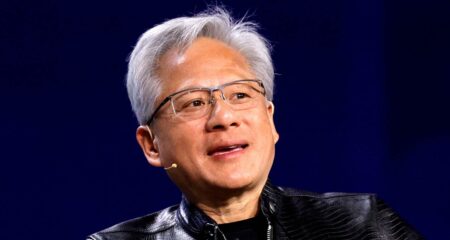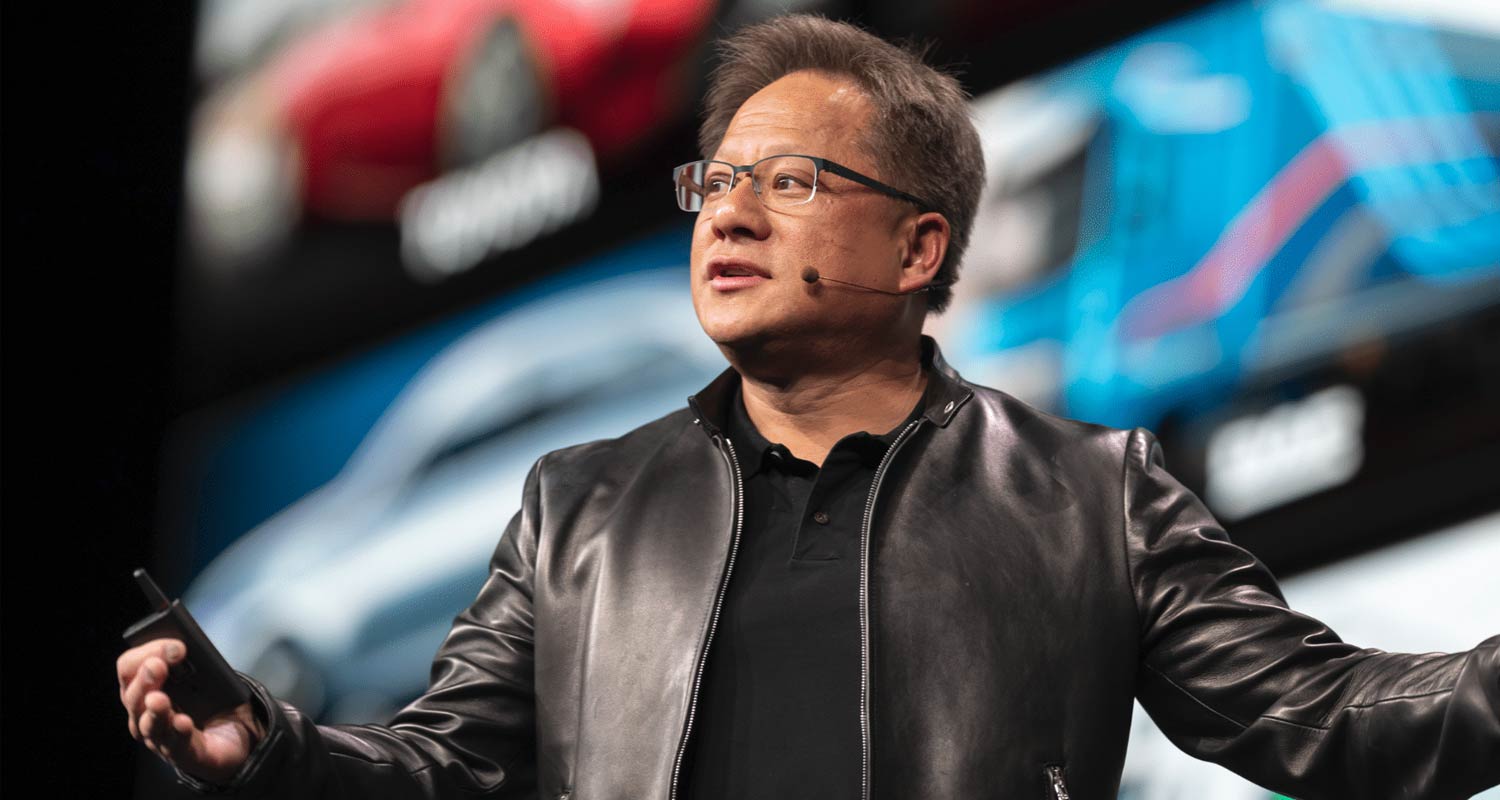
Jensen Huang wasn’t on the official Computex 2024 programme, but he didn’t need to be.
The Nvidia billionaire led an unprecedented cast of tech glitterati to the world’s biggest computing conference this week in Taiwan, where he effortlessly upstaged the likes of Intel CEO Pat Gelsinger — without a single official keynote or session.
From packing a 4 000-seat sports stadium to paparazzi-fuelled night-market jaunts, the leather jacket-clad CEO and his US$3-trillion company drew the largest audiences and biggest entourages. As icing on the cake, the 61-year-old this week joined the likes of Elon Musk in a select group of business chieftains worth at least $100-billion, riding a $315-billion Nvidia market rally over three frantic days.
“Someone coined the term Jensanity, and that’s exactly what it’s been,” said Dan Nystedt, an analyst at TriOrient Investments.
Yet observers who navigate past Nvidia’s (very large) wake can spot trends that may in time determine the direction in which AI evolves around the world. This year, “AI PCs” mushroomed across the cavernous show floors; hitherto unknown Taiwanese names became stars; Microsoft software was ubiquitous in presentations and exhibition booths; and many tech honchos studiously avoided talking China, sanctions or politics.
Here’s what we learned at the largest Computex ever.
It’s Jensen’s world now
Nvidia’s star grew even more ascendant this week, thanks to its dominant share of the market for the high-end accelerators used to train AI.
Huang was easy to spot on the show floor at all times — observers could literally tell where he was from the cheering, chanting and visible, moving mass of people that track the CEO wherever he goes. When not touring the booths, he hosted dinners for CEOs and cameo-ed at partner events. He signed Super Micro servers, journalists’ laptops and — in a video that went viral — one young lady’s chest.
Many credit Huang’s company for putting Taiwan and Computex on the map. Just a year ago, the co-founder urged one audience of Taiwanese students to “run, don’t walk” to embrace AI. This year, Huang was racing so hard he didn’t get breakfast one day until 3.30pm when he munched on a turkey sandwich — onstage while speaking to the crowd.
Nvidia today commands an ecosystem of software, hardware and solutions that rivals from AMD to Intel are trying hard to break up or replicate. But one little understood fact about Nvidia is that its success hinges in no small part on the hundreds of companies that together make AI possible — many of them based in Taiwan.
Taiwan sent a message with this year’s raucous Computex: if you want AI, you need Taiwan.
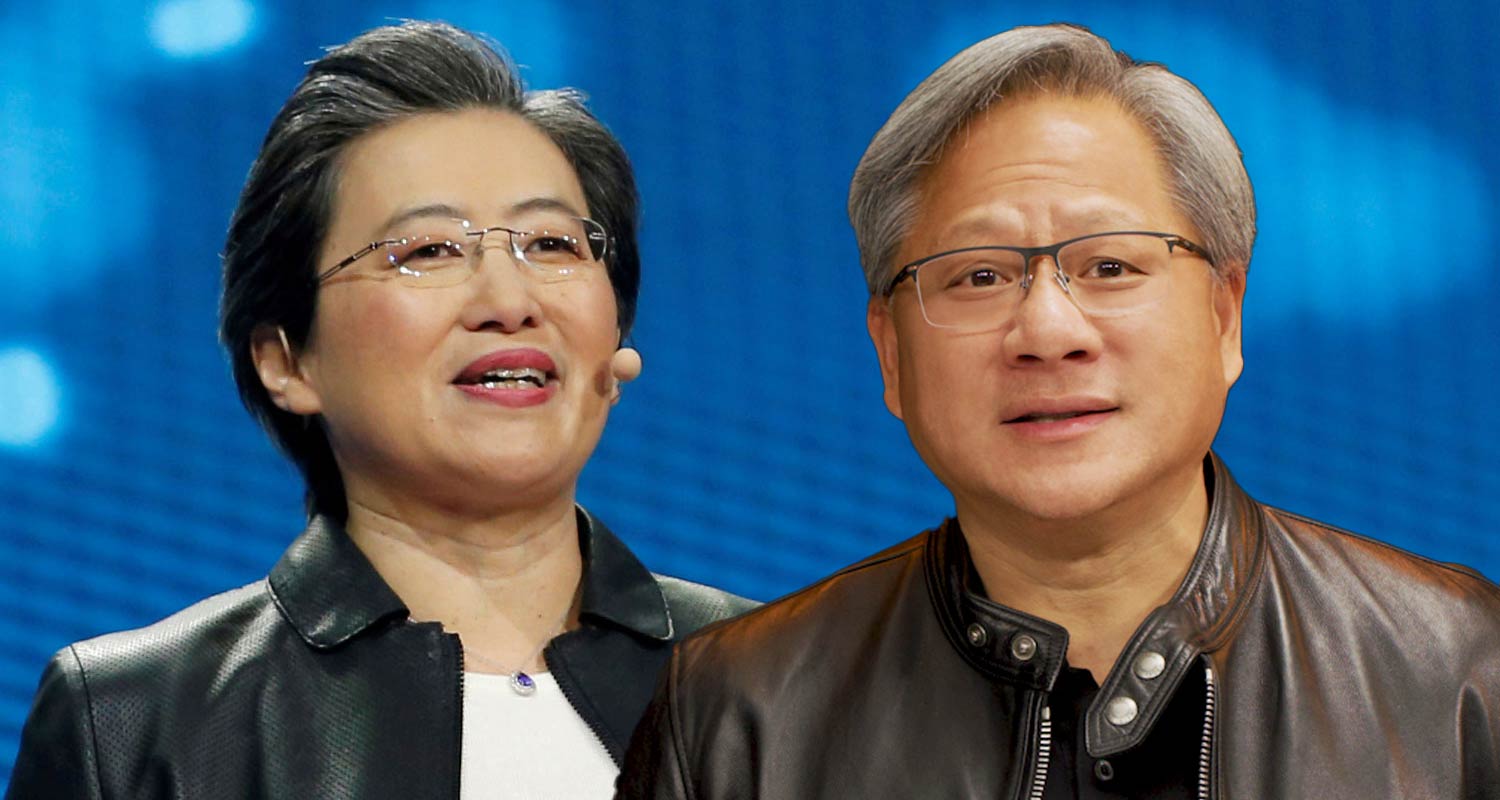
Taiwan Semiconductor Manufacturing Co made the island a compulsory stop for governments around the world trying to secure chips. But there’s more to AI than just the chip: motherboards, modules, servers, cooling systems and more are all mostly designed and initially made in Taiwan. More than nine-tenths of the world’s AI-capable servers are made by the island’s firms, Bloomberg Intelligence’s Steven Tseng estimates, operating out of factories spanning Mexico to Malaysia.
As the world rushes to build out data centres to cope with the AI rush, that supply chain is coming into focus. That’s why this week the marquee names actively courted the bosses of companies like Wiwynn, Quanta Computer, Inventec, Pegatron and more. Most of those are barely known outside of Taiwan. Yet Jensen Huang, AMD’s Lisa Su and Intel’s Gelsinger were just a few of the bigwigs who toured their booths, signed their hardware and took their bosses out to dinner. Huang in his press conference called them the “unsung heroes”.
Read: Nvidia tops Apple in market value
“What Jensen is doing — running around with all these people — is a sign that the Taiwan electronic components and server-maker ecosystems hold a key position in the global supply chain. When companies start building things, they are still going to the Taiwanese first because of longstanding working relationships and the one-stop shop that Taiwan offers,” said Jon Yu, an analyst and founder of the Asianometry YouTube channel. “The system integrators then make many of the critical decisions on components that make or break whole companies.”
Among the many things Taiwanese companies specialise in is the design and fabrication of laptops. Which brings us to…
What the heck is an AI PC?
This year’s buzz centred on AI PCs. The only problem is, no one can quite agree on what they are.
From Qualcomm’s Cristiano Amon to AMD’s Lisa Su, just about every executive extolled the benefits of having AI computations performed on the laptop — the edge — rather than via a remote cloud server. But things get squishy after that.
“Everyone’s got their own definition of AI PCs, and that’s to promote their products,” Johnson Hua, a senior manager of marketing at Kioxia, said frankly.
A Gigabyte Technology representative argued such a device must have a motherboard that supports the latest components (spoiler alert: Gigabyte makes motherboards). Asustek Computer said it’s a device that helps people work more efficiently. It should have the latest generation CPU, Acer says. Thing is, much of that sounds pretty much exactly like a high-end laptop.
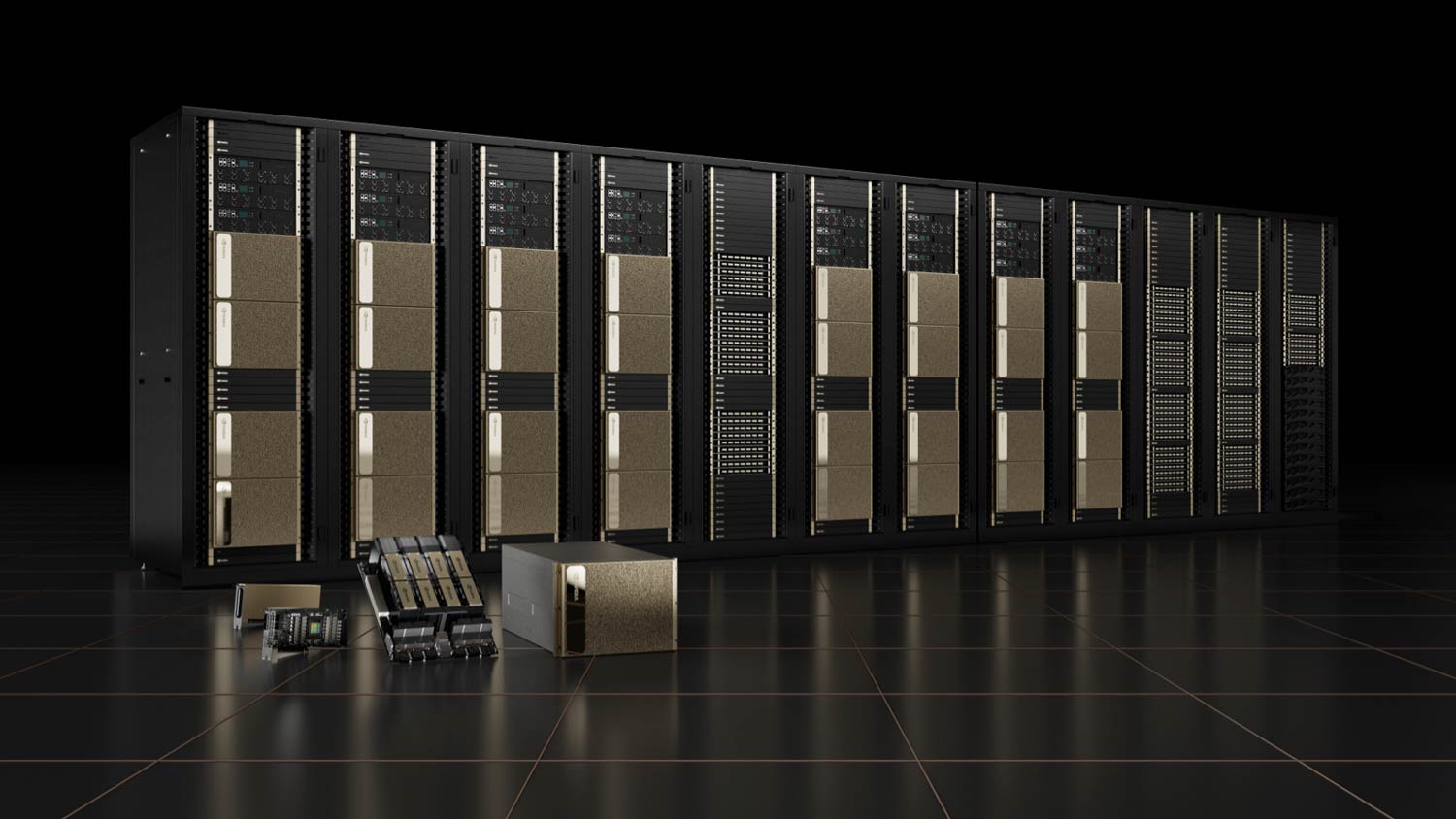
Wesley Kuo, CEO of Nvidia-backed cloud-based AI services firm Ubitus, said the concept was “a joke”. It will take years for a device to run “acceptable native AI”.
Case in point: Shao Yu, an Asus product manager, said she couldn’t demonstrate some of the functions because the venue’s internet was too slow.
No politics please, we’re tech
Geopolitical uncertainty has been a dominant topic at conferences around the world. In Taipei, every mention drew either the evil eye or a nervous laugh and brush-off.
Just weeks ago, the People’s Liberation Army held military exercises around the island after its new president’s inauguration. Around the show floor, the topic of China rarely came up, even though it’s a deciding factor in local elections and arguably one of the biggest priorities for a Washington administration seeking to shore up the US lead in high technology.
At Computex, it might as well all be a fever dream. At a media Q&A, Huang asked for a “happy” last question. The lucky local journalist who got picked chose to ask about geopolitics. The reporter “is not well. As the last question before we all leave, she would like to ask about geopolitical stuff,” Huang said, miming displeasure.
Farewell, PC
Microsoft is the unseen guiding hand behind this exuberant celebration of tech. Windows chief Pavan Davuluri did the rounds as a guest speaker at the major keynote events. CEO Satya Nadella gave video endorsements to each chip-making partner. And Qualcomm’s CEO wore white takkies prominently sporting Microsoft’s Copilot logo.
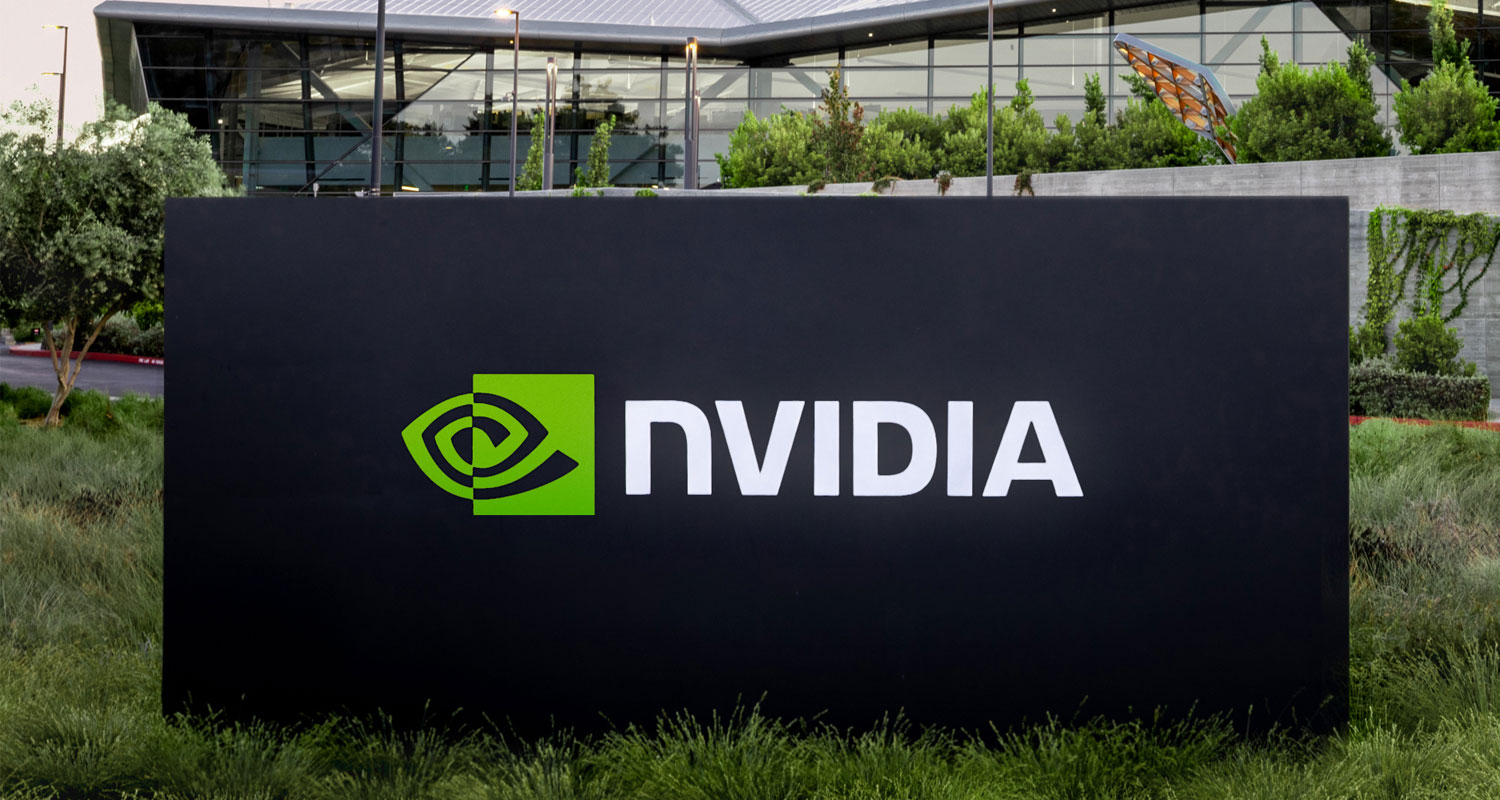 If there was any coherence to the message coming out from competing companies, it came from Microsoft. The Windows maker is betting billions on ushering in a new AI age.
If there was any coherence to the message coming out from competing companies, it came from Microsoft. The Windows maker is betting billions on ushering in a new AI age.
The excitement around AI is understandable given the PC market has been either flat or in decline for close to a decade. One thing everyone in Taipei this week could agree on — the industry was entering uncharted territory, with uncertain outcomes for all. “This is the most consequential time of our careers,” Gelsinger said. — Vlad Savov, Jane Lanhee Lee and Takashi Mochizuki, (c) 2024 Bloomberg LP




